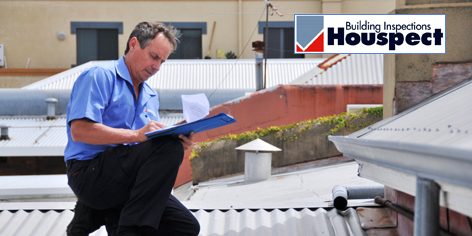Behind the facade of what seems to be your dream home, problematic issues may be lurking. Before you spend your hard-earned money on a new home, it’s imperative to have a professional home inspection conducted to ensure the property is in reasonable shape. Pre-purchase inspection reports can help you to uncover potential problems which may not be immediately obvious, thus saving you from exorbitant hidden expenses in the long term. Home inspections are common practice when you’re purchasing an existing home, but they can also be important for new constructions, renovation and commercial properties. Inspections may help to facilitate problem solving and building disputes, with the inspector acting as a neutral, unbiased third party.
Conflict of Interest – Because professional home inspectors should not provide repairs or service estimates, you can rest assured there will be no conflict of interest when it comes to the accurate reporting of potential issues. Home inspectors are, by necessity, a thoroughly neutral party whose job is only to find and reveal things which may cause problems in the future.
Dispelling Common Myths – Home inspections can be a bit nerve-wracking, especially if you aren’t sure what to expect from the process. Also, it’s important to understand a few commonly-held myths about the inspection process. First and foremost, a professional home inspection is intended to help potential buyers and homeowners uncover major faults, not to find every minor cosmetic issue. All accessible areas of the building will be examined in order to uncover any cause for major concern. An inspector will not give the property a passing or failing grade, instead providing you with a thorough report on the actual condition of the property so you’re able to make an informed decision on your own.
What to Expect on Inspection Day – Over the course of a home inspection, the inspector will examine several key aspects of the structure to ensure its soundness and identify any areas in which attention may be required. This includes the general condition of mortar joints, plaster, retaining walls, gutters, downpipes and roofing materials. An inspector will also ascertain the structural integrity of a home, and look for sources of water damage, water entry and drainage problems. Routine inspections include checking for the presence of asbestos, examining storm water disposal methods and the condition of wiring, hot water units, plumbing fixtures and fittings. In most cases, the average home inspection will require anywhere from one to two hours. Very large properties may require a bit longer, but the entire process will almost always be completed within one day, including the return of a full report.
Choosing a Professional Home Inspection Company – To ensure a smooth and simple process, its wise to choose a reputable and experienced home inspector. The NSW government suggests choosing a home inspector who is a licensed builder, surveyor or architect who has extensive experience within the building trade. Ideally, a licensed builder will also be a member of the Master Builders Association. Also, look for an inspection company who is fully covered with professional indemnity and public liability insurance. They should be able to ensure the report is compliant with the Australian Standard (AS 4349.1), as well.
The ideal home inspector will take the time to truthfully answer any questions you may have about the report itself, or the home inspection process in general. This includes going over the final findings of the inspection report, and any information relevant to the condition of the property. By choosing a reputable and experienced home inspector, you’re guarding the largest and most important investment you’ll make – the purchase of a new home.
Houspect Building Inspections – Buy, Build and Invest with Confidence







